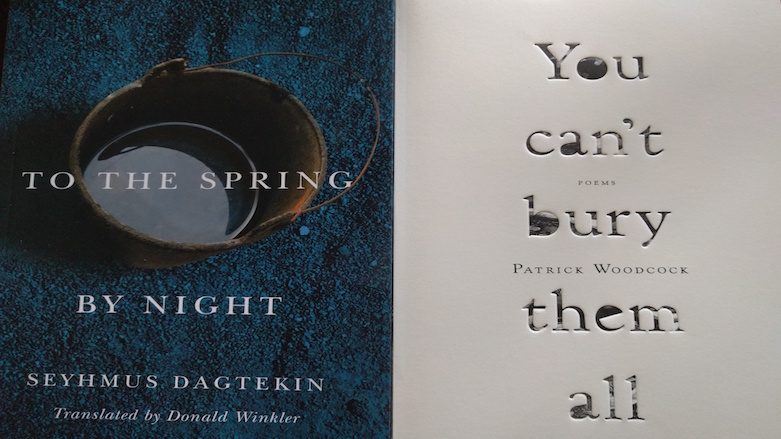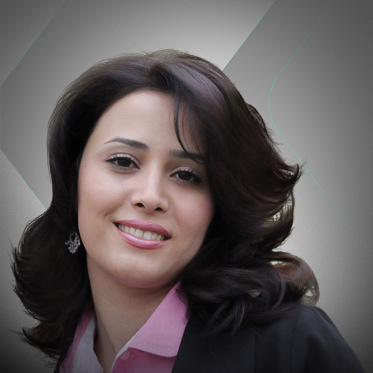Kurdistan present at American literary conference

LOS ANGELES, United States (Kurdistan24) – Kurdish literature and literature about Kurds in the English language were presented this weekend at North America's largest literary conference.
Association of Writers and Writing Program (AWP) held its 2016 conference and book fair in Los Angeles, California, from March 30 to April 2, where over 25,000 people attended various panel discussions, readings and speeches.
A significant number of panel discussions revolved around diverse literature set outside of the Western world. That includes Kurdistan.
Although stateless and oppressed, Kurds have an ancient and rich culture. Through literature, a multi-dimensional picture of this little-known group is offered that is now praised for being the main ground force battling extremists of the Islamic State (IS).
You Can't Bury Them All, Patrick Woodcock's poems about Kurds, Handful of Salt, Kajal Ahmad's translated poems, To the Spring by Night, Seyhmus Dagtekin's translated novel offered a fresh and profound insight into the much-mentioned Kurds, a group the world yearns to learn more about.
Patrick Woodcock is a Canadian poet who lived in the Kurdistan Region for about two years and who has written two poetry collections about Kurds.You Can't Bury Them All (ECW, 2016) is his latest title. His previous poetry collection Echo God and Silent Mountains dealt with subjects such as Kurdish genocide, Ezidis (Yezidis), uprisings and other historical, cultural and political matters.
Woodcock calls himself "an almost Kurd." Rather than standing at a distance and putting Kurds under a Western microscope, Woodcock becomes a Kurd when he writes, as if he has lost loved ones in massacres too, as if his hometown, school and hospital have been smashed too, as if he has unearthed the ground and has tried to identify the long-“disappeared” family and relatives too.
Virginia-based poet and lecturer, Alana Marie Levinson-LaBrosse, who taught at the American University of Sulaimani for four years, translated selected poems of Kajal Ahmad into English in collaboration with Mewan Nahro Said and Darya Abdul-Karim Ali Najm, two of her former students.
LaBrosse, who is currently studying her Ph.D. in Kurdish Literature at Exeter University in the UK, has translated numerous Kurdish poems into English including Abdullah Pashew and Sheikh Raza’s works.
In a reading organized by The Word Works as part of AWP offsite events, LaBrosse read two poems from Handful of Salt. In the introduction to the book, she offers an overview of Ahmad's style and her multiple layers of cultural and political references. It also reveals some insight into the poet's life.
LaBrosse, who believes Ahmad is the Gertrud Stein of Kurdistan, told Kurdistan24 she was first drawn to this part of the world because it is where "a lot of streets are named after poets."
"Kurdistan is poet's heaven," LaBrosse said.
"Young people in Kurdistan are very connected to poetry. It's sacred for them. At a poorly organized reading, 200 people show up. At a well-organized one, 700 show up," LaBrosse told her enthusiastic audience before reading the poem.
"You don't see how with the trees/I go bare and blossom/Blossom and go bare/With a lover as ruthless as my homeland/I go untouched/I grow thorns like a cactus/from heartbreak." This is an excerpt from a poem called "Ah, you don't see me."
“Alana's reading of Kajal Ahmad's translated poetry was breathtaking. It was one of those rare moments when one hears something deeply familiar and yet entirely fresh; when one is relating to the poems and yet surprised by one's own feelings,” said Cklara Moradian, a Kurdish-American poet and activist.
Barbara Goldenberg, the Series Editor of the International Editions at The Word Works, told Kurdistan24 that she found LaBrosse after reading some of her translated poems in a literary magazine. She later became so involved with the book that she was a co-translator in addition to editing it.
"It's a challenge to find poems written by live female poets and translated by women. You can find many poems translated by men but not so many by women," Goldenberg told Kurdistan24.
Nancy White, president of The Words Work, told Kurdistan24 that working so closely with LaBrosse and Ahmad has been an eye-opening and joyful experience. "This is one of the collections that I like better every time I go back to it," she said.
Seyhmus Dagketin, an award-winning Kurdish writer from Kurdistan of Turkey (Bakur) was another Kurdish author whose work was present at AWP this year. He is based in France and has adopted French as the language of his literary writing.
To the Spring by Night published by McGuill-Queen University Press is the English title of his novel translated by Donald Winkler.
One of the themes at the AWP this year was the importance and the need for diverse literature in the predominantly white publishing industry. Given the status Kurds now have gained in the world for their brave fights against the IS insurgents and the tyrannical states in the Middle East, it is the best time for Kurdish literature to be translated and published in North America.
Reporting by Ava Homa
Editing by Karzan Sulaivany
